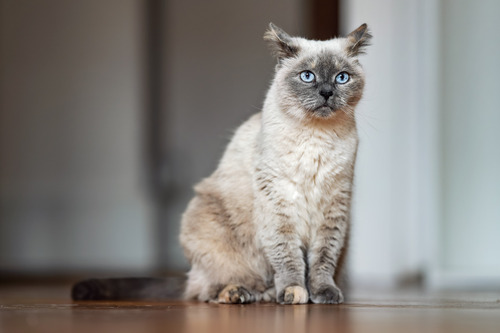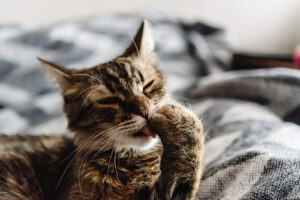As our beloved cats age, they experience many changes, just like humans do. One noticeable change that can be a cause for concern is weight loss. Understanding why senior cats lose weight and how to promote healthy aging is essential for every pet owner. If you have concerns about your senior cat’s health or notice any changes in their weight, Chino Valley Animal Hospital is here to help. You can reach us at (928) 636-4382 for more information or to schedule an appointment.
Recognizing the Signs of Age-Related Changes in Cats
Physical and Behavioral Changes in Aging Cats
As cats enter their senior years, typically around the age of 7, they start to show both physical and behavioral changes. These might include a decrease in activity, changes in sleep patterns, and variations in appetite. Weight loss is one of the most common signs you might notice. It’s important to monitor these changes closely, as they can be indicators of underlying health issues.
When to Seek Veterinary Advice
Noticing changes in your cat’s behavior or body can be worrying. If you see your cat losing weight, it’s time to visit a vet. Weight loss in senior cats can be due to various reasons, ranging from dental problems to more serious health conditions. Early detection and intervention are key to managing any health issues effectively.
Understanding the Causes of Weight Loss in Senior Cats
Several health issues can lead to weight loss in senior cats. These include:
- Dental problems, which can make eating painful.
- Kidney disease, a common ailment in older cats.
- Hyperthyroidism, which speeds up metabolism.
- Diabetes, affecting the cat’s ability to process sugars.
Each of these conditions requires a different approach to care and treatment, which is why a professional diagnosis is so important.
Nutritional Needs of Aging Cats
As cats age, their nutritional needs change. They may need more easily digestible food or a diet with specific nutrients to support their aging bodies. Senior pet check-ups can help determine the best diet for your senior cat and ensure they are getting the right balance of nutrients.
Supporting Your Senior Cat’s Health and Well-being
- Regular Veterinary Check-Ups: Regular check-ups are vital for monitoring the health of your senior cat. These visits allow your vet to spot any potential issues early on and provide the necessary care or adjustments in diet or lifestyle.
- Creating a Comfortable Environment: Making some simple changes at home can greatly improve the quality of life for your senior cat. This includes easy access to food and water, a comfortable resting place, and ensuring they can reach their litter box without difficulty.
- Importance of Mental and Physical Stimulation: Keeping your senior cat mentally and physically active is important for their overall health. Engaging in gentle play and providing toys that stimulate their minds can help keep them active and happy.
Preventing and Addressing Weight Loss in Senior Cats
Monitoring Weight and Eating Habits
Keeping a close eye on your cat’s weight and eating habits is key. Sudden changes can be a sign of health issues. Regular weight checks and noting changes in eating patterns can help you identify any concerns early.
Tailoring Diet and Nutrition
As your cat ages, their diet may need to be adjusted. This can include special senior formulas or diets formulated for specific health conditions. Your vet can recommend the best options for your cat’s needs.
Schedule An Appointment at Chino Valley Animal Hospital Today!
Understanding and addressing weight loss in senior cats is an important part of caring for your aging pet. By being attentive to their health, diet, and environment, and seeking timely veterinary advice, you can help your senior cat enjoy a happy, healthy, and comfortable life. If you have concerns about your senior cat’s health or have noticed changes in their weight, Chino Valley Animal Hospital is here to assist. Call us at (928) 636-4382 for more information or to schedule a check-up for your cat.





